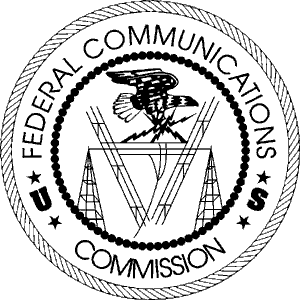La FCC (Federal Communications Commission) ha aperto un’inchiesta per fare luce sulla vicenda Google Voice, applicazione per iPhone rifiutata da Apple probabilmente sotto pressione della AT&T.
Vi abbiamo già parlato di questo rifiuto, dovuto molto probabilmente al fatto che Google Voice consente di effettuare chiamate ed inviare SMS a prezzi vantaggiosi, togliendo potenziali introiti all’operatore mobile USA AT&T.
Ma l’inchiesta non si ferma qui, in quanto vengono prese al vaglio tutte le applicazioni rifiutate da Apple e aventi funzioni simili a Google Voice.
Per il momento la FCC si è limitata ad inviare ad Apple una lettera ufficiale nella quale viene chiesto di spiegare nel dettaglio il motivo del rifiuto e il ruolo che AT&T ha avuto nella vicenda e nella scelta delle applicazioni da approvare.
Viene anche chiesto di spiegare la differenza tra Google Voice e le altre applicazioni VOIP che invece sono presenti su AppStore
Si tratta quindi di un indagine molto importante, che tra l’altro è partita su iniziativa della stessa FCC e non su segnalazione di Google o di un qualsiasi altro concorrente.
Se siete curiosi, questo è il testo completo della mail ricevuta dai rappresentanti legali della Apple:
Catherine A. Novelli, Vice President
Worldwide Government Affairs
Apple Inc.
901 15th Street, NW, Suite 1000
Washington, DC 20005RE: Google Voice and related iPhone applications
Dear Ms. Novelli:
Recent press reports indicate that Apple has declined to approve the Google Voice
application for the iPhone and has removed related (and previously approved) third-party applications from the iPhone App Store.1 In light of pending FCC proceedings regarding wireless open access (RM-11361) and handset exclusivity (RM-11497), we are interested in a more complete understanding of this situation.To that end, please provide answers to the following questions by close of
business on Friday, August 21, 2009.1. Why did Apple reject the Google Voice application for iPhone and remove related third-party applications from its App Store? In addition to Google Voice, which related third-party applications were removed or have been rejected? Please provide the specific name of each application and the contact information for the developer.
2. Did Apple act alone, or in consultation with AT&T, in deciding to reject the Google Voice application and related applications? If the latter, please describe the communications between Apple and AT&T in connection with the decision to reject Google Voice. Are there any contractual conditions or non-contractual understandings with AT&T that affected Apple’s decision in this matter?
3. Does AT&T have any role in the approval of iPhone applications generally (or in certain cases)? If so, under what circumstances, and what role does it play? What roles are specified in the contractual provisions between Apple and AT&T (or any non-contractual understandings) regarding the consideration of particular iPhone applications?
4. Please explain any differences between the Google Voice iPhone application and any Voice over Internet Protocol (VoIP) applications that Apple has approved for the iPhone. Are any of the approved VoIP applications allowed to operate on AT&T’s 3G network?
5. What other applications have been rejected for use on the iPhone and for what reasons? Is there a list of prohibited applications or of categories of applications that is provided to potential vendors/developers? If so, is this posted on the iTunes website or otherwise disclosed to consumers?
6. What are the standards for considering and approving iPhone applications? What is the approval process for such applications (timing, reasons for rejection, appeal process, etc.)? What is the percentage of applications that are rejected? What are the major reasons for rejecting an application?
Request for Confidential Treatment. If Apple requests that any information or documents responsive to this letter be treated in a confidential manner, it shall submit, along with all responsive information and documents, a statement in accordance with section 0.459 of the Commission’s rules. 47 C.F.R. § 0.459. Requests for confidential treatment must comply with the requirements of section 0.459, including the standards of specificity mandated by section 0.459(b). Accordingly, “blanket” requests for confidentiality of a large set of documents are unacceptable. Pursuant to section 0.459(c), the Bureau will not consider requests that do not comply with the requirements of section 0.459.
Thank you in advance for your anticipated cooperation.
Sincerely,
James D. Schlichting
Acting Chief
Wireless Telecommunications Bureau
Federal Communications Commission
Ora non ci resta che attendere la risposta ufficiale di Apple, che per il momento si è chiusa dietro un “no comment”.




